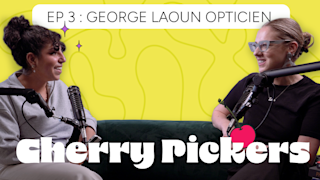Odeyalo : Being part of the solution in the fashion industry
This week, join us for our second episode featuring the wonderful Marie-Ève Proulx from Odeyalo Clothing. As a fashion enthusiast since childhood, designer of clothing by experience and teacher in fashion school at Marie Victorin in Montreal, Marie-Ève tells us about what starting her own company was like. She reveals the truths about the fashion industry that pushed her towards her entrepreneurial journey emphasizing on how Odeyalo Clothing is built on principles of transparency and being part of the solution.. She is as inspiring as her business and we all have something to learn from her valuable insights, especially for those looking to start in the clothing industry and wanting to learn more.
So, get comfortable, grab your favorite hoodie and tune in as we bring you expertly chosen business advice for everyday life.
Follow us :



